54 Medicinal-Chemistry PhD positions
Filtered by.
- Medicinal-Chemistry

Refine Your Search
- Scholarship 49
- Research Job 7
- Netherlands 6
- Australia 5
- United Kingdom 4
- United States 4
- Switzerland 1
- RMIT University 4
- University of Bergen 4
- Leiden University 3
- Ludwig-Maximilians-Universität München • 3
- Technical University of Munich 3
- Chalmers University of Technology 2
- Justus Liebig University Giessen • 2
- NTNU - Norwegian University of Science and Technology 2
- Ruhr-Universität Bochum • 2
- University of Göttingen • 2
- University of Nottingham 2
- ; University of Cambridge 1
- Delft University of Technology 1
- Duke University 1
- ETH Zurich 1
- Ghent University 1
- Goethe University Frankfurt • 1
- Johannes Gutenberg University Mainz • 1
- Linköping University 1
- Max Planck Institute for Informatics • 1
- Max Planck Institute for Sustainable Materials • 1
- Max Planck Institute of Geoanthropology, Jena 1
- Max Planck Institutes 1
- Murdoch University 1
- Philipps-Universität Marburg • 1
- Radboud University 1
- SciLifeLab 1
- Ulm University • 1
- Umeå University 1
- University of Cambridge 1
- University of Lund 1
- University of Pittsburgh 1
- University of Tennessee 1
- University of Tennessee Health Science Center 1
- Wageningen University and Research Center 1
- Chemistry 14
- Medical Sciences 10
- Computer Science 8
- Linguistics 3
- Materials Science 2
- Arts and Literature 1
- Mathematics 1
PhD Studentship: Synthetic Organic Chemistry /Chemical Biology
the project will provide exposure and training in high-throughout experimentation, computational design and medicinal chemistry . We are looking for a highly motivated and enthusiastic individual capable
PhD position in Organic Chemistry /Radiochemistry
radiochemistry for medicine . You will be responsible for exploring novel chemistry in the cold lab, in particular the investigation of novel fluorination methods/reagents and the synthesis of precursors
PhD in Metabolic Imaging of Muscle Metabolism
01.10.2024, Wissenschaftliches Personal The Department of Nuclear Medicine at the Technical University of Munich (TUM) is seeking applications from highly motivated candidates for a PhD position in
Two PhD Candidates in theoretical chemistry
administration. Chemistry is also a basic discipline for medicine , biology and technology, and an important key in issues related to energy, climate, the environment, food, water and health. Research activities
PhD in Deuterium Metabolic Imaging at TUM/Cambridge
X-ray crystallography and other biophysical methods to characterize rna-ligand interactions (dc12 in msca targetrna network).
methods from molecular biology, structural biology, biophysics, computational chemistry , synthetic and medicinal chemistry , and microbiology, all the way up to in vivo models to discover new small molecule
Researcher 3-Pharmaceutical Sciences
REQUIREMENTS: EDUCATION: Ph.D. in Synthetic Organic Chemistry , Medicinal Chemistry , or a related field. (TRANSCRIPT REQUIRED) EXPERIENCE: Two (2) years of experience in medicinal chemistry . Strong publication
PhD Position: Small Druglike Molecules for Modulating Protein-Protein Interactions
knowledge of organic reactions and extensive experience with the design and synthesis of small molecules. You have preferably used your synthesis skills in medicinal chemistry projects. You are enthusiastic
Searches related to Medicinal Chemistry
- organic chemistry
- postdoctoral
- germany phd in medicinal chemistry
- postdoctoral position in medicinal chemistry
- medical sciences
- phd medicinal chemistry
- postdoc position in natural product chemistry
- drug discovery
- Department of Chemistry >
- Graduate >
- Graduate Overview >
PhD in Medicinal Chemistry
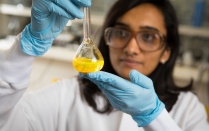
Find your home in UB Chemistry! We're here to help you every step of the way.
- 3/5/24 Graduate Admissions
- 6/11/24 Financial Aid and Funding
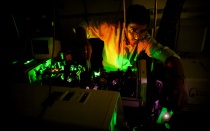
Already enrolled in UB? Get details about advisement, forms and other resources for current students.
- 5/25/23 Info for Current Students
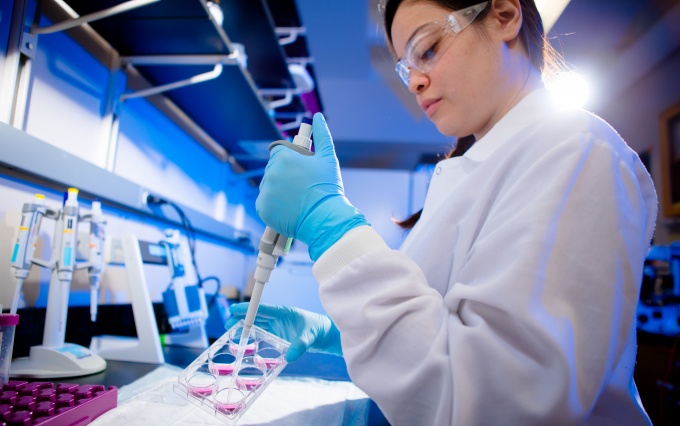
The PhD in Medicinal Chemistry provides a unique opportunity for students to develop a strong foundation in organic and medicinal chemistry and also to broaden their knowledge in areas such as drug discovery, biochemistry, molecular biology and pharmacology.
PhD Program Requirements
- Coursework Once admitted to the PhD in Chemistry program, students are required to complete six graduate-level lecture courses during the first two years of full-time study. Of these courses, three must be one-semester introductory core courses selected from the four traditional areas of chemistry (CHE 501 and MCH 501 are required for the Medicinal Chemistry PhD), while the other three elective courses are chosen in consultation with the student’s research advisor.
- Proficiency Students must also demonstrate proficiency in medicinal chemistry, as well as in three of four traditional areas of chemistry, during the first three semesters. Proficiency can be established by completing a core graduate course or by passing the ACS Placement Exam in the area. A 3.00 grade point average in lecture courses is required.
- Research Synopsis During the fifth semester (third year) of graduate study, PhD students are required to prepare a written research synopsis summarizing research progress to date and future research plans. An oral examination with the student’s PhD committee is used to evaluate the student’s research potential.
- Research Proposal Also during the fifth semester, the student is required to write and orally defend an independent research proposal. This proposal involves the identification of a problem from the chemical literature that is not directly related to the student’s thesis work and a proposed solution to that problem. There are no cumulative exams in the UB Department of Chemistry.
- Public Lecture During the fourth year of graduate study, PhD students present a public lecture on their research progress. This provides the PhD committee a chance to give the student feedback prior to finishing their written dissertation.
- Dissertation and Oral Defense The majority of a PhD student’s time is spent on creative research. At the conclusion of the research work, a dissertation must be written and orally defended before the PhD committee and the department at large.
Faculty Research Mentor
The Department of Chemistry views an advanced degree in chemistry or medicinal chemistry as primarily a research degree, so the choice of research director is an important decision for the first-year graduate student. To facilitate the selection of the research mentor, the members of the faculty engaged in research present a general overview of their research interests in a series of meetings with the new graduate students. This allows the students to become acquainted with the different research opportunities in the program in an informal setting.
Students are also encouraged to speak informally with as many faculty members as possible before making their decision. Assistance is available to those students having difficulty with this decision. However, it is to the student’s advantage to select a research advisor at the earliest possible date. Typically, graduate research is initiated during the second semester or during the first summer within the program.
PhD Student Timeline
Upon arrival, all new graduate students are required to take standardized tests produced by the American Chemical Society to assess their preparation for graduate study. Results of these tests are used by the Graduate Curriculum Committee to help students select their first-semester courses. A typical first-semester graduate student takes three core graduate-level courses and is also engaged in TA duties. Most of the required course work is finished by the end of the second or third semester in the program.
The following table provides a typical PhD graduate student timeline:
PhD Program Metrics
Email [email protected] or contact Prof. Timothy Cook , director of graduate studies, for more information on this program and the admissions process.

Give to the School

Drug Discovery: PhD Program
Uniquely positioned to bridge the chemical and biological worlds.
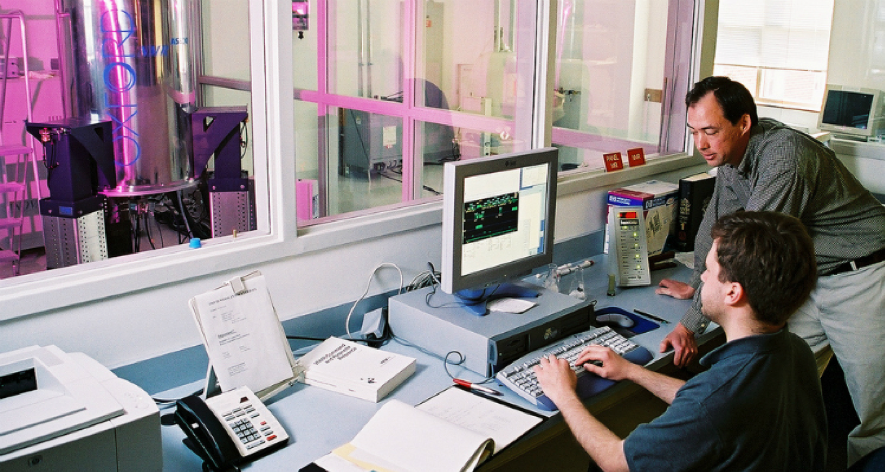
Our program seamlessly blends chemistry and biology, which distinguishes it from traditional graduate programs. We develop and exploit novel chemical tools relevant to the fields of biochemistry, biology, pharmacology, and medicine. Research is directed toward biomedical and pharmaceutical discovery by applying both chemical and biological principles to interactions between molecular structure and biological activity.
All of our graduates have been successful in finding desirable positions. An important measure of the success of our program is whether students are obtaining their first-choice postdoctoral positions. To a large extent, our recent graduates are receiving multiple offers from top labs. Our recent graduates have taken postdoctoral positions in prestigious labs at Harvard, Duke, Scripps, and MIT, to name a few.
PhD Requirements
Students enter the CBMC program through application to either the Pharmaceutical Sciences program or the Biological and Biomedical Sciences Program, a large umbrella program offering an entry to 16 PhD programs on the UNC-Chapel Hill campus. The Figure below shows the overview of the CBMC program. To complete the CBMC graduate program, a student needs to pass 8 courses, cumulative exams, qualifying exam and thesis defense. In addition, students will participate in the weekly seminar series throughout the training. Over the last 10 years, more than 50 PhD students have graduated from the CBMC program and the average time to completion is approximately 5 years. More details are described in the Student Handbook .
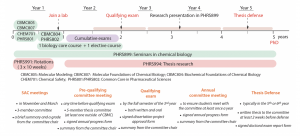
PhD Curriculum
CBMC 807: Molecular Foundations in Chemical Biology Prerequisites: Students are expected to have a solid understanding of introductory organic chemistry as taught at the undergraduate level.
This course provides a review of important concepts in organic chemistry as they apply to biological research. Topics include a review of intermolecular interactions as they apply to biological structures and function, a discussion of how small molecules interact with their targets, an overview of synthetic methods that relate particularly to drug molecules, and basic strategies of drug design.
CBMC 805: Molecular Modeling Prerequisites: None
This course provides a general introduction to the field of Molecular Modeling while providing relevant applications of theory to both academic and industrial research endeavors.
PHRS 801: Common Core in Pharmaceutical Sciences Prerequisites: None.
This course provides an interdisciplinary environment for students from each of the four Divisional PhD programs in UNC Eshelman School of Pharmacy. Students will learn about and develop skills in topics related to responsible conduct of research, pharmaceutical development, professional development, and independent development.
PHRS 899: Seminars in Chemical Biology Students must register for PHRS 899 each semester of their graduate program. However, only 4 credits of PHRS 899 (2 credits for MS) may count toward requirement for the PhD degree. Seminars are conducted jointly with the Division of Chemical Biology and Bioorganic Chemistry in the Department of Chemistry. Attendance at all Division seminars is mandatory and two unexcused absences will result in a grade of F. As an additional component of the seminar requirements of the graduate curriculum, attendance by all students is required during a student’s Doctoral Defense. These Defense seminars are held outside of the normal seminar series.
Each student is required to present a seminar in PHRS 899 either in the student’s third year or in the beginning of his/her fourth year and will be considered in assigning the grade in PHRS 899. In this seminar, the student critically reviews the area pertinent to his/her thesis topic making sure that s/he discusses studies that include his/her group’s contributions and those of other laboratories and includes a description of the student’s ongoing studies that add to this body of research. Faculty members will evaluate the student seminar. Students receiving an overall failing evaluation on the presentation will receive an “incomplete” grade in PHRS 899 for that semester and must consult with the seminar coordinator before giving a make-up seminar at a later date. Additionally, students receiving “incomplete” grades may be advised to seek further training in presentations. In those cases where the student’s research contains intellectual property (IP) and where disclosure risks the IP, a student can provide a comprehensive review of a different subject in medicinal chemistry. Permission to do so will require approval of the thesis adviser and the seminar coordinator. Each seminar topic, title, summary, and research article must be approved by the student’s research adviser and seminar coordinator. A student presenter should send the title of their seminar talk to the Graduate Program Coordinator upon request.
PHRS 991: Research in Pharmaceutical Sciences (Research Rotations) During the first two semesters, the student conducts three ~10-week research rotation projects, each under the supervision of a different faculty member. These rotation projects are considered as course work for PHRS 991. Students select rotations from any of the CBMC Faculty. With approval of the DDGS, students may also perform rotation projects with faculty outside the labs of the CBMC Faculty, especially when the rotation will provide training in an area that is outside of the expertise of the CBMC Faculty.
To select an adviser for each research rotation, the student should interview members of the CBMC faculty about possible projects. Prior to each rotation, the student will turn in a RESEARCH ROTATION LAB SELECTION FORM (Appendix A) to the Graduate Program Coordinator. Over the course of the first year each student is encouraged to schedule individual interviews with all members of the CBMC faculty. Although varied slightly from year to year, the rotations usually start in the late August and end in the late April in the next year. The schedule for the 2022-2023 academic year is as follows:
Fall : Monday, August 22 – Friday, October 28 (OK to start before August 22)
Winter : Monday, November 7-Friday, January 20
Spring : Monday, January 30 – Friday, April 7
Students admitted in the fall semesters can begin their rotations the summer before. In that scenario, the student must contact the Graduate Program Coordinator at least four weeks prior to the start of the rotation. The summer rotation will be considered as one of their three required rotations. A waiver for one research rotation may be granted if a student has previously completed substantial independent research. Students seeking such a waiver must petition the DDGS, and provide information (e.g. reports, manuscripts, grant proposals, and/or letters from research advisers) about their previous research. If a student has obtained a specific fellowship to work with a CBMC faculty member, then research rotations may be optional.
During lab rotations, students are expected to work in the laboratory at least 20 hours per week. Students are fully integrated into the laboratory during their rotation projects and are involved in lab meetings and journal clubs. At the beginning and end of each rotation, the rotation adviser and student review a written or oral statement of expectations for the student’s performance in the laboratory. These discussions provide the student with the advisers’ expectations and critical comments on areas of excellence and weakness. Guidelines for the research rotations are described in the PHRS 991 syllabus.
At the end of each rotation, students will submit a written report using the Research in Pharmaceutical Sciences – Student Evaluation Form (Appendix B) to the Graduate Program Coordinator. Students will also present the results of their rotation projects to their Student Advisory Committee (SAC). The SAC committee, in consultation with the rotation adviser, will provide a brief summary and evaluation and submit a grade to the Graduate Program Coordinator and the DDGS to be entered at the end of the semester. After the third rotation, students will present the work of their rotation in the CBMC End of Year Mini-Symposium.
The DDGS serves as the temporary advisor for the first-year students who enroll in PHRS 991. The SAC committee provides additional mentoring and consists of three CBMC faculty. The SAC is formed at the beginning of the first semester based on a student’s request and availability of faculty members.
CHEM 701 (Introduction to Laboratory Safety) Prerequisites: first year graduate student status or permission of instructor
This course provides an overview of safety rules and regulations, guidance in safe laboratory practice, and creates a culture of laboratory safety.
CBMC 804A: Biochemical Foundations of Chemical Biology . Prerequisites: CHEM 466, BIOC 505, 601, or PHCO 643; or permission of instructors.
This course covers core biochemical and molecular biology techniques, concepts, and tools used to conduct research at the interface of chemistry and biology. Topics include enzymology, characterization of drug-target interactions, mechanisms-based inhibitor design, assay design and development, targeting kinases and GPCRs, biopharmaceuticals, gene therapy, nucleic-acid binding agents, information-based drugs, chemical tools to study epigenetics, harnessing biosynthetic pathways for chemical diversity, and other recent advances and techniques in drug discovery.
CBMC 804B: Foundations of Chemical Biology Journal Club . Prerequisites: Enrollment in CBMC 804A.
This course is a series of presentations by students that run in concert with CBMC 804A.
Biology Core Course Each student has the option to choose one 3- or 4-credit hour course on campus that is focused on biological systems or techniques. A good starting point to find such a course is the BBSP website. Some examples include PHCO701 (Introduction to Molecular Pharmacology), BIOC706 (Biochemistry of Human Disease), GNET631 ( Advanced Molecular Biology), CBIO643 (Cell Structure and Function) and CBIO893 (Advanced Cell Biology).
PHRS 802: Drug Development and Professional Skills Development Prerequisites: None.
This course provides an interdisciplinary environment for students from each of the four Divisional PhD programs in UNC Eshelman School of Pharmacy. Students will learn about the general process of drug development and develop associated professional skills.
Elective Course: Students have the option to take one elective course of their interest. There is no requirement on the number of credit hours of the course. Students typically choose a course that provides specific skills and knowledge their thesis work needs.
PHRS 994: Research in Pharmaceutical Sciences (Thesis Research) The students begin to register 3 credit hours PHRS 994 each semester once they have chosen the thesis adviser. Guidelines for the thesis research are described in the PHRS 994 syllabus.
Meet Our Faculty and Staff
Cbmc faculty, katelyn arnold.
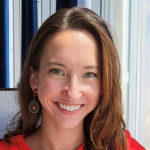
Katelyn Arnold is a Research Assistant Professor in the Division of Chemical Biology and Medicinal Chemistry (CBMC). Dr. Arnold’s research interest is in therapeutic development of synthetic heparin. She uses chemoenzymatically synthetized oligosaccharides in various animal models to investigate the relationship between oligosaccharide structure and function to understand anti-inflammatory mechanisms. This work also involves pharmacokinetic studies using methods and standards specific for synthetic heparin.

ACCEPTING DOCTORAL STUDENTS
The Aubé laboratory uses synthetic chemistry to enable the study of biological pathways and as starting points for drug discovery. Current efforts in the group include the study of new opioids lacking side effects, new approaches for the treatment of tuberculosis, androgen biosynthesis inhibitor discovery, the search for RNA-protein interaction inhibitors, and the development of new synthetic methods.
Alison Axtman
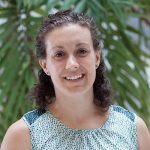
The Axtman lab is devoted to characterization of the dark proteome, especially those proteins with underexplored roles in the brain. Our interests lie at the interface of chemistry and biology, with a focus on using small molecules, specifically potent and selective chemical probes, to explore and impact disease-propagating pathways. Active projects are aimed at finding pre-clinical small molecule candidates that, after further optimization, can help address the need for new therapeutics in human diseases. Our scientists are working to design and synthesize chemical modulators and develop screening assays. All data and reagents are openly shared to facilitate and expedite scientific advancement.
Albert Bowers
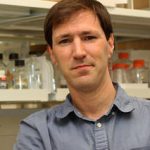
Albert Bowers received his PhD in organic chemistry (synthetic methods) from the University of Illinois at Chicago. He carried out postdoctoral research (total synthesis) at Colorado State University before moving as an NIH sponsored fellow to Harvard Medical School (biosynthesis). He is a member of the UNC Lineberger Comprehensive Cancer Center and affiliate member of the Center for Integrative Chemical Biology and Drug Discovery.
Rafael Couñago

Rafael M. Couñago, PhD, is a Research Associate Professor in the Division of Chemical Biology and Medicinal Chemistry Department in the UNC Eshelman School of Pharmacy and a Principal Investigator at the Structural Genomics Consortium (SGC) at UNC. Rafael´s research group at SGC-UNC uses protein biochemistry, structural biology and cell-based assays to illuminate protein function and explore new therapeutic strategies for human diseases.
David Drewry

The Drewry lab in focused on designing, synthesizing, evaluating, and sharing small molecule chemical probes for protein kinases. These tools are used to build a deeper understanding of disease pathways and facilitate identification of important targets for drug discovery. Through wide ranging partnerships with academic and industrial groups, the Drewry lab is building a Kinase Chemogenomic Set (KCGS) that is available to the community for screening.
Kevin Frankowski

Research in the Frankowski lab uses synthetic chemistry to develop new approaches for the treatment of unmet medical needs. Our current efforts focus on programs to treat metastatic cancer, hepatitis C virus infection and the development of chemical tools for studying dopamine and sigma receptors.
Stephen Frye
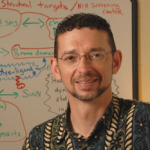
Dr. Stephen Frye is currently a Professor in the Center for Integrative Chemical Biology and Drug Discovery (CICBDD) which he previously directed at the University of North Carolina at Chapel Hill (UNC). Prior to joining UNC to create the CICBDD in 2007, Dr. Frye was the world-wide vice president of Discovery Medicinal Chemistry (DMC) at GlaxoSmithKline (GSK). Dr. Frye led DMC for seven years, overseeing five departments and more than 200 chemists in the U.S. and U.K. developing global protein target-class chemical science for GSK. During his 20-year career at GSK, the teams led by Dr. Frye successfully developed three FDA approved drugs: Avodart, a dual 5a-reductase inhibitor for treatment of benign prostatic hyperplasia, Tykerb, a dual erbB2/EGFR inhibitor for the treatment of metastatic breast cancer, and Pazopanib, a multi-targeted receptor tyrosine kinase inhibitor for the treatment of renal cell carcinoma and soft tissue sarcoma. As founding director and current faculty member in the CICBDD at UNC, Dr. Frye plays a key role in translational research through collaborative drug discovery projects with other UNC faculty. A clinical candidate from one of these projects created in the Center is now progressing through multiple human trials. In addition, his lab has established a leading program in the area of chemical biology of chromatin regulation with an emphasis on protein-protein interactions dependent upon lysine methylation. Dr. Frye has published more than 130 papers in the fields of organic and medicinal chemistry.
Ryan Gumpper , Ph.D.
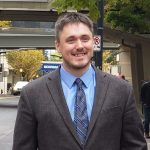
ACCEPTING DOCTORAL STUDENTS The Gumpper lab utilizes structural biology (cryoEM), biophysical/biochemical assays, and computational approaches (MD simulations, molecular modeling, and docking) to study the molecular mechanisms controlling G-protein-coupled receptor (GPCR) signaling. We are interested in revealing how molecular interactions influence the larger downstream biological and therapeutic outcomes. As a model system we focus on studying psychedelic compounds and their receptor targets (namely 5-HT2A and 5-HT2C receptors) to produce novel chemical matter to treat pain and neuropsychiatric disorders.
Lab website: https://tarheels.live/gumpperlab/
Lauren Haar

Our projects focus on investigating the role that refined spatial and temporal control of intracellular signaling cascades can play in the progression of cardiovascular injury. We use a research strategy involving plasmid and optogenetic protein engineering, high content screening, high resolution microscopy and physiologically based cell analysis. With this approach we hope to uncover new targets for therapeutic development by better defining signaling cascades that drive cardiovascular disease response.
Nate Hathaway
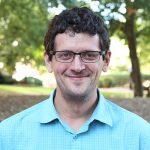
The Hathaway lab was established at UNC with a founding idea that the group could make a contribution to understanding dynamic epigenetic processes by using unique chemical biology approaches they pioneered. Through the combination of protein bioengineering, synthetic organic chemistry, and mammalian cell-based model systems, they have created platforms that use chemically tethered enzymatic recruitment to specific chromatin loci to produce a host of mechanistic insights. The Hathaway group also has drug discovery programs to identify new small molecules that inhibit disease relevant epigenetic pathways both for research purposes and as potential future therapeutics.
Lindsey Ingerman James

The James lab is interested in modulating the activity of chromatin reader proteins with small-molecule ligands, specifically potent and selective chemical probes, in order to open new avenues of research in the field of chromatin biology and potentially translate to compounds of therapeutic value. They are also interested in applying novel probe-based techniques, such as affinity labeling technologies, to the study of epigenetic regulators.
Michael Bruce Jarstfer
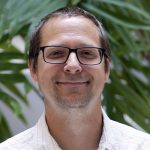
Michael Jarstfer, PhD, is an Associate Professor within the Division of Chemical Biology and Medicinal Chemistry and the Associate Dean for Graduate Education. He is also the Director of Graduate Studies for the Pharmaceutical Sciences PhD program. Dr. Jarstfer has expertise in drug target identification, high-throughput-screening, medicinal chemistry, and compound optimization for drug discovery as well as pharmacology in preclinical animal models.
David S. Lawrence
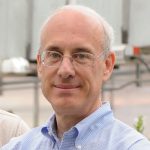
NOT ACCEPTING GRADUATE STUDENTS
The Lawrence lab works to understand the biochemical processes of the cell by studying them as they happen in the cell as opposed to studying them in vitro. He currently focuses on applying his discoveries to cancer detection and treatment and, to a more limited extent, inflammatory diseases.
Andrew L Lee

Andrew Lee studies the role of conformational dynamics in protein function, conformational changes, enzyme catalysis, drug binding, and allostery. His laboratory uses a variety of biophysical and biochemical tools, especially NMR spectroscopy. NMR spectroscopy is a powerful approach that yields atomic-resolution molecular information and is uniquely sensitive to molecular fluctuations over a broad range of timescales.
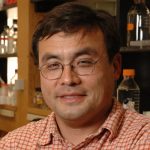
Research in the Jian Liu group is focused on glycobiology and glycobiochemistry, an emerging field that emphasizes the biological functions of carbohydrates. We are particularly interested in understanding the biosynthetic mechanism of sulfated polysaccharides known as heparan sulfate and heparin.
Rihe Liu , PhD
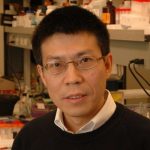
The Liu laboratory’s research interests focus on the development and application of novel drug target-binding affinity molecules by integrating directed molecular selection and evolution, ligand design and engineering, in vitro cellular and signaling characterization, and in vivo therapeutic efficacy studies in tumor mouse models. The Liu laboratory has extensive experiences in the design, synthesis, characterization, and delivery of diagnostic and therapeutic agents based on both polypeptides and polynucleotides.
Robert McGinty

The McGinty lab studies molecular mechanisms of chromatin signaling. By pairing atomic precision protein chemistry with high resolution structural biology, they aim to understand how the nucleosome functions as a signaling hub for gene expression, DNA replication, and DNA damage repair in development and disease.
Eugene Muratov
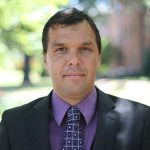
Dr. Muratov served as a corresponding author on an approach used by regulators to initially screen new chemical products for toxic effects. They have proposed an improvement that could increase the accuracy of toxicity estimation to as much as 85 percent, saving millions of dollars and years of development time for new drugs and other products while improving safety.
Samantha Pattenden
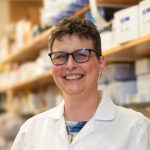
The Pattenden lab develops innovative techniques in chromatin-based therapeutic target discovery and cancer diagnostics. Our research program enables discovery of novel molecular targets, pathways and mechanisms. Our central strategy exploits tumor-specific changes in chromatin accessibility, a universal feature that is directly linked with transcriptional activation, DNA damage repair, replication, RNA processing, and nuclear organization.
Kenneth Pearce, Jr

Ken Pearce, Ph D is the director of the Center for Integrative Chemical Biology and Drug Discovery. Pearce’s primary expertise and interests are fundamentals of protein methods, biochemical and cell assay development, medium- and high-throughput screening, hit validation and mode-of-action, biophysical methods for characterizing protein-protein and small molecule-protein interactions, and structure-activity relationships for early drug discovery. He joined the center as director of lead discovery and characterization in mid-2015 after spending over 18 years at GlaxoSmithKline and legacy companies in the Molecular Discovery Research organization.
Konstantin Popov
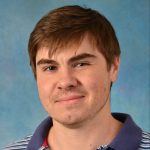
The Popov Lab develops inventive, cutting-edge approaches to solve problems in modern computational structural biology and drug discovery. Their computational research, in collaboration with experimental screening and medicinal chemistry efforts in the Center for Integrative Chemical Biology and Drug Discovery enables the identification of novel chemical probes and drug candidates to advance understanding of biological processes. Some of their recent projects include: • Identification and characterization of allosteric and cryptic binding sites • Development of AI-driven methods for accelerated virtual screening (VS) • AI approaches for DNA-encoded library (DEL)-guided virtual screening (VS) and new-generation DEL library designs • Collaborative hit discovery and optimization projects
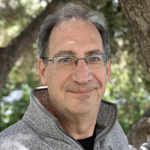
We are actively engaged in drug discovery efforts via the shared resources of the National Institute of Mental Health’s Psychoactive Drug Screening Program. Our goals are to discover and develop novel small molecule probes for in vitro and in vivo validation of molecular targets for therapeutic drug discovery. We have particular strengths with GPCR and ion-channels and have expanded our capabilities to enable screening of the entire GPCR-ome in massively parallel screening campaigns (see Keiser et al, Nature 2009; Huang et al, Nature in press and Kroeze et al, Nature Structural Biology 2015 for recent papers).
Paul Sapienza
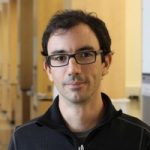
Paul Sapienza is a research assistant professor in the Division of Chemical Biology and Medicinal Chemistry at the UNC Eshelman School of Pharmacy. His research aims to further understanding of the role of dynamics in biomolecular recognition, enzymatic catalysis, and allostery. He uses nuclear magnetic resonance spectroscopy to study protein dynamics on multiple timescales, while other tools such as calorimetry, crystallography, and kinetics serve to link dynamics with function. He is focusing on thymidylate synthase as it is an enzyme with a multistep catalytic cycle, is a cancer drug target, and exhibits negative cooperativity (allostery).
Scott Singleton

Scott Singleton is engaged in educational innovation and research. His work attempts to build on what is understood about memory and attention to devise, test, and implement effective teaching and learning strategies. His current work focuses on teaching that positively affects student engagement in the classroom, identifying core basic science concepts that serve as threshold concepts for pharmacy students, and evaluating the transfer of learning between courses in the professional PharmD program.
Junjiang Sun

Junjiang Sun is a Research Assistant Professor in the Division of Chemical Biology and Medicinal Chemistry (CBMC). Sun’s research interests focus on gene therapy for hemophilia, hemophilia associated joint disease (Hemophilia Arthropathy), by expressing bypassing agents (activated coagulation factor V, IX) via AAV vectors. This technology platform provides novel therapeutic approaches for rheumatoid arthritis (RA) and osteoarthritis (OA).
Alexander Tropsha , PhD

Alex Tropsha, Ph.D., is an expert in the fields of computational chemistry, cheminformatics and data science. His laboratory develops new methodologies, software tools and applications in the areas of computer-assisted drug design, chemical toxicology, materials informatics, text mining, and health care informatics.
Xiaodong Wang
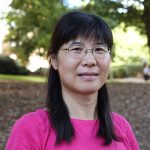
The Wang lab is interested in developing drug leads/candidates for kinase, phosphate kinase and protein targets identified by UNC faculty and external investigators. We have successfully used the structure- and/or ligand-based drug design approaches to deliver compounds to clinic (MerTK inhibitors such as MRX-2843) or licensing (IDH1 inhibitor, co-developed with NCATs). We will continue to apply the similar approaches for drug discovery towards new targets.
Tim Willson
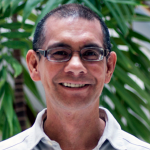
The Willson laboratory is home to the US site of the SGC, an open science consortium that accelerates research on the lesser studied regions of the genome. The laboratory works closely with pharma companies and academic investigators to develop small molecule chemical probes for hundreds of dark kinases that are openly shared with the scientific community. Current research has led to the development of the Kinase Chemogenomic Set (KCGS) that contains selective inhibitors of more than 200 kinases as well as high quality chemical probes for several of the dark kinases.

Dr. Xu co-authored the Heparin study with Dr. Jian Liu and Dr. Lindhardt. Heparin is a naturally occurring polysaccharide that prevents blood clotting, or coagulation, and has been in use since the late 1930s. A polysaccharide is a long chain of carbohydrate molecules.
Qisheng Zhang

The Zhang lab studies lipid signaling pathways that are involved in human disease by developing novel chemical probes and technologies. They currently focus on discovering new bioactive lipids, developing small molecule modulators and biosensors for lipid metabolizing enzymes, and applying their research results to novel diagnosis and treatment of cancer, Parkinson’s disease, and antimicrobial resistance.
CBMC Joint Appointments
Cbmc emeriti faculty, cbmc adjunct faculty, yuriy abramov , ph.d.
Nikolay Dokholyan, PhD, MS
Sean ekins , ph.d., denis fourches, phd, clark d jeffries , ph.d., jian jin , ph.d., kyoko nakagawa-goto , ph.d., david nichols , ph.d., lars pedersen, ph.d..
[email protected] Adjunct Associate Professor, UNC Eshelman School of Pharmacy Staff Scientist, Head of Collaborative Crystallography Lab, NIEHS
Dr. Tang is a collaborating member from ViiV Healthcare with the UNC-Chapel Hill HIV Cure Center. His research is focused on discovering novel HIV latency reversal agents with better tolerability and exploring new ways to clear the latent T cells upon activation and viral particles.
Lan Xie , Ph.D.
Weifan zheng , ph.d..

Sara Leslie

Ain G. Mason


Jacqueline Norris-Drouin

Michael Stashko


Meet our PhD Students and Fellows
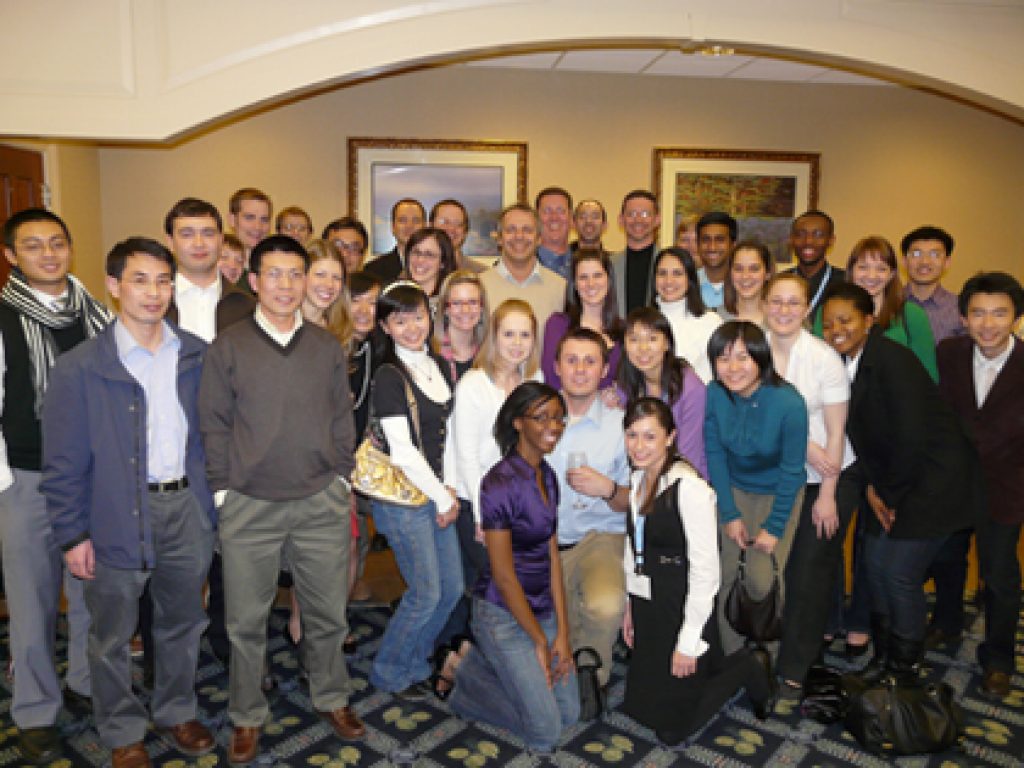
Our students receive full financial support, including a competitive stipend, paid tuition and health insurance. They complete the Ph.D. program in approximately five years, and our graduates have taken postdocs in prestigious labs (at Harvard, Duke, Scripps and MIT to name a few) and found desirable positions in academia and pharmaceutical and biotechnology companies. We meet many of our students for the first time during the School’s Recruitment Weekend each January.
Download Brochure
- Graduate Students

- Andrew Perkowski

- Feijun Wang
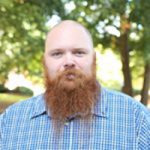
Ready to take the next step?
ABOUT THE DIVISION APPLY NOW CONTACT US DOWNLOAD OUR BROCHURE

The PhD Program in Medicinal Chemistry educates and trains students in the design and synthesis of novel, biologically active compounds and in delineating their mechanisms of action using biochemical, biophysical, and pharmacological approaches. Research specializations are available in synthetic, biochemical/pharmacological, and biophysical aspects of medicinal chemistry. Doctoral research in these specializations will relate to faculty areas of research, which currently include substance use disorders and addiction; neuropathic pain; obesity and metabolic disorders; neuropsychiatric disorders (psychoses, ADHD, depression, anxiety, eating disorders); and neurodegenerative diseases.
In The News
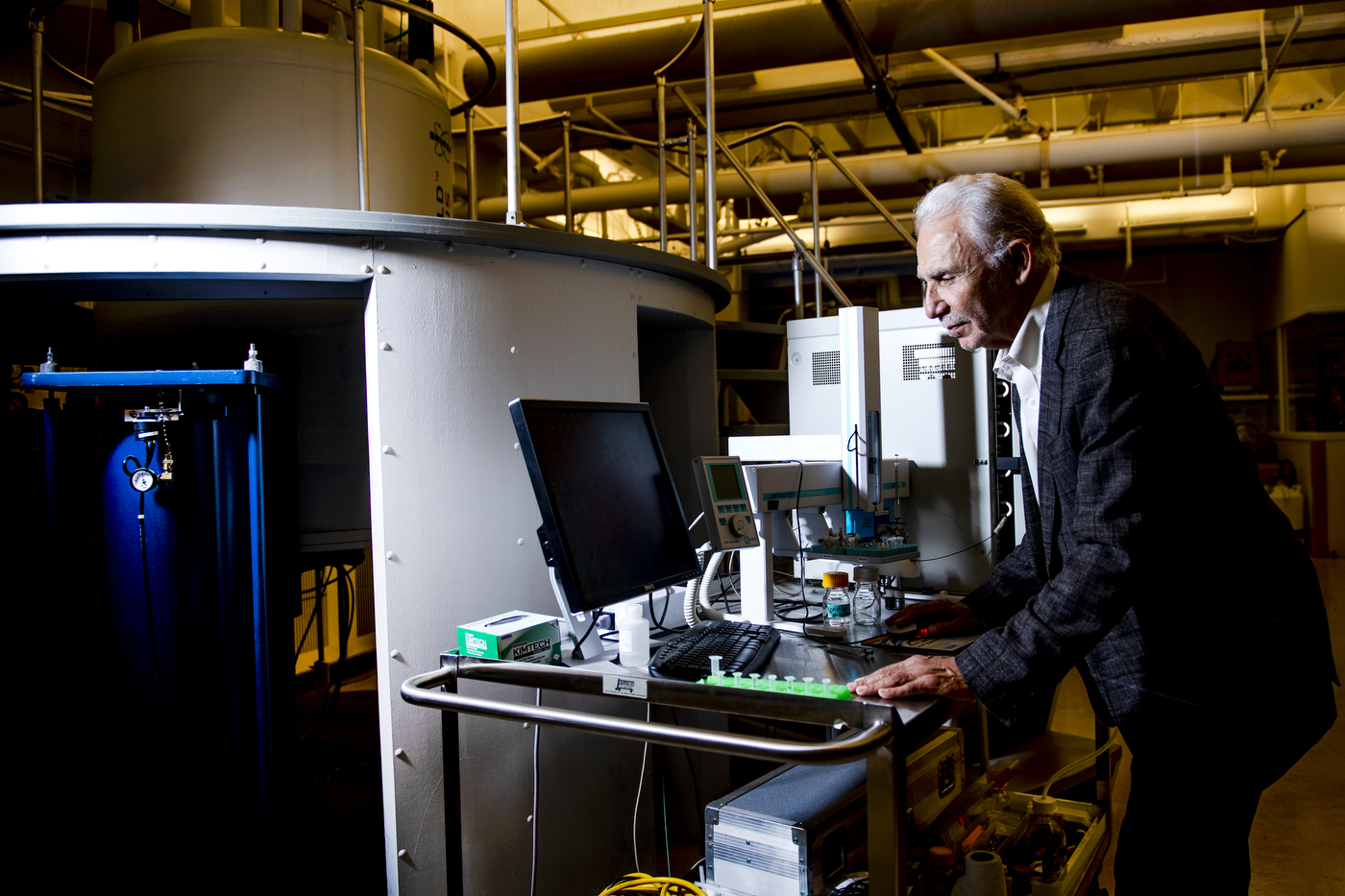
Cannabis Will Transform Medicine—Once We Figure Out How to Get Rid of Its Side Effects
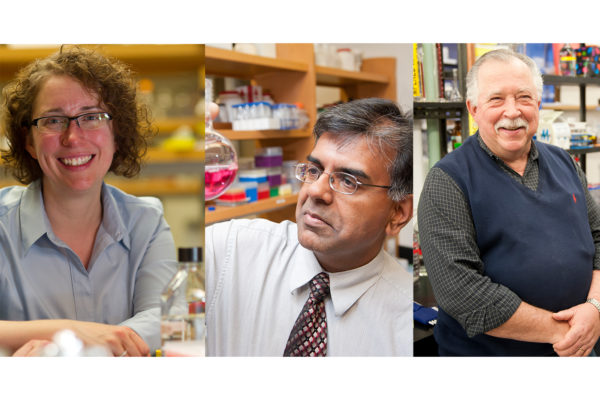
Drug Discovery Spurs Innnovation, Collaboration
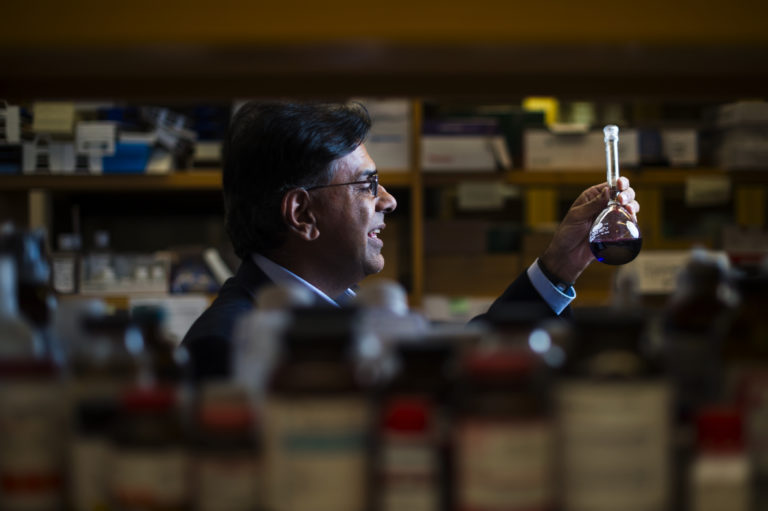
Groundbreaking Cancer Gene Therapy
This specialization trains students in the design and synthesis of novel, biologically active small molecules and study of their mechanisms of action using biochemical, biophysical, and pharmacological approaches. Concentrations are available in synthetic, biochemical/pharmacological, and biophysical medicinal chemistry, and nanomedicine. New chemical matter is targeted to treat drug abuse, addiction, neuropathic pain, obesity, neuropsychiatric disorders (psychoses, ADHD, depression, anxiety, eating disorders), neurodegenerative disorders, and glaucoma. Students may be supported by a training grant from the National Institute on Drug Abuse.
Where They Work
- Novartis Institutes for Biomedical Research
What They Do
- Healthcare Services
- Business Development
What They’re Skilled At
- High-Performance Liquid Chromatography
- Pharmaceutical Industry
- Cell Culture
- Biotechnology
Application Materials
Application.
- Application fee – US $50
- Three letters of recommendation
- Transcripts from all institutions attended
- Personal Statement
- Official GRE scores
- TOEFL score for applicants who do not hold a degree from a U.S. institution and whose native language is not English
- Please note all international applicants will need to provide a WES evaluation. Link to WES: https://www.wes.org/ https://www.wes.org/
Admissions deadline for Fall term: December 6
- Program Website
Request Information for PhD in Medicinal Chemistry and Drug Discovery
PhD in Medicinal Chemistry
Application is now open for incoming PhD class of 2025: Beginning Tuesday, October 1st, 2024 Application submission deadline: Monday, December 16th, 2024 Prospective student visits (by invitation only): Mid-Late Feb 2025
The Department
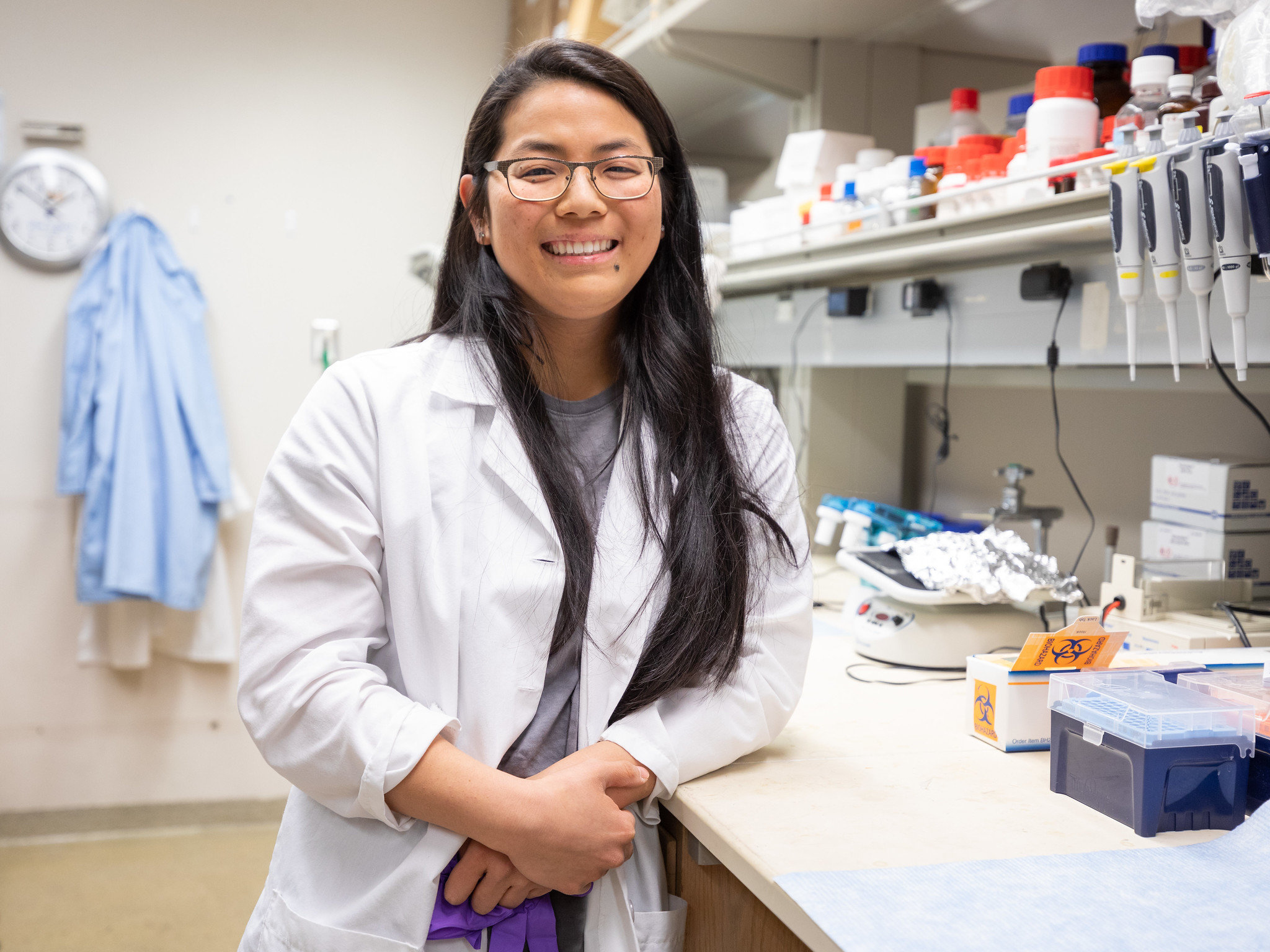
We have 8 faculty running active research labs tackling health-related problems at the interface of chemistry and biology. Our department is internationally recognized for work on the mechanism and kinetics of xenobiotic metabolism by cytochrome P450s (CYPs) and other detoxification enzymes. CYPs metabolize most drugs used in the clinic, and their dysfunction is linked to harmful drug-drug interactions, inflammation, cancer, heart disease, and impaired neurodevelopment. Recently, our research has diversified into other areas of biochemistry, pharmaceutical chemistry, biophysics and chemical biology. Some faculty study therapeutic antibodies, peptides and other biologics, which are revolutionizing clinical practice. Other faculty study virology with the goal of developing better vaccines and treatments for diseases like HIV/AIDS and influenza, or neurodegeneration with the goal of improving the diagnosis and treatment of dementias like Alzheimer’s disease. Our faculty also develop new analytical techniques, such as mass spectrometry methods to characterize lipids, metabolites and glycoproteins more quickly and sensitively than ever before. Learn more about each lab’s research here .
The PhD Experience
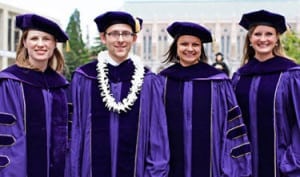
Coursework requires students to become proficient in organic, medicinal and physical chemistry, pharmacology, biochemistry, and molecular biology. (See a typical Program of Study , and course descriptions in the course catalog .) The curriculum is adaptable to individual interests and needs, and most didactic coursework is completed in the first two years. For more information on the program please refer to our most recent Med Chem student handbook .
Professional development outside the laboratory and classroom is a major point of emphasis. Students build communication skills through regular presentations to their labs, and in departmental journal clubs and research seminars. Many students interested in biotech/pharma careers have benefited from our innovative industry mentorship and internship programs.
Financial Support
Incoming graduate students are generally supported by a research assistantship from the department for the first year of study, allowing students to dedicate their time to study and work in the lab. It currently covers tuition (excluding a $265 per quarter student fee) and an additional stipend of $3259 /month. In subsequent years, support is provided either by the department or by research or training grants. Outstanding applicants are considered for an ARCS Scholarship that provides an additional stipend of $7,500 for the first year and $5,000 for the next two years of graduate school. The research assistantship also provides health insurance at no charge for students; coverage is available for spouses and dependents for an additional fee. (You can find more information on the Graduate Appointee Insurance Program and other benefits through UW Human Resources .)
Career Opportunities
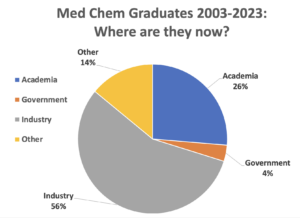
Our graduates also excel in academia. Recent graduates have done post-doctoral work at institutes such as Yale University, University of California San Francisco, University of California San Diego, Lawrence Berkeley National Lab, Queen Mary University of London, and Children’s Hospital Research Center. Subsequently, alums have gone on to tenure-track faculty positions at top-tier research universities, colleges of pharmacy, and liberal arts colleges.
More Application Info & FAQs
- Prospective Student Inquiries [email protected]
- General Inquiries [email protected]
- Job Posting Request
- Building Hours & Maps
- Prospective Students
- Current Students
What's Happening
Student resources, quick links.
- Alumni & Friends
Update Your Information
- Academic Departments
- Clinical Pharmacy
- Medicinal Chemistry
- Pharmaceutical Sciences
Research in Clinical Pharmacy
Research in medicinal chemistry, research in pharmaceutical sciences, research cores and services, biointerfaces institute, michigan drug discovery.
- Michigan Institute for Clinical & Health Research
Translational Oncology Program
- Faculty Publications
- Research Opportunities
- Research Collaborations
UM Pharmacy Professor Research Outreach (PRO)
- About the College
Message from the Dean
- Dean Search
Accreditation
New cop building, our history, our leadership.
- Our Mission, Vision & Organization
Teaching Excellence Awards
Job openings.
- Diversity, Equity & Inclusion
Department Contact Info
Emergency information.
- COVID-19 Updates
Sexual and Gender-Based Misconduct
- Alternative and Complementary Medicines
- Diagnosis and Health Conditions
- Healthy Choices
- Information for Caregivers
- Medication Information
- Other Resources
- COP Directory
Search form
- Alumni & Friends
Why U-M Pharmacy?
Recruitment events, student blogs, career potential, program overview.

- Information Request Form
PharmD Program
- Experiential Education
- Pharmacy Phamilies
- PharmD Curriculum
- Assessments
- Pharmacy Student Ambassadors
- Pre-Pharmacy Student Organization (PPSO)
PhD in Clinical Pharmacy
Phd in medicinal chemistry, phd in pharmaceutical sciences, ms in integrated pharmaceutical sciences.
- Career Flexibility
BS in Pharmaceutical Sciences
- Program Goals
- Fast Track to PharmD
- Student Services
- Research and Honors Program
- Student Outcomes
Dual Programs
- Dual BSPS Program
- Dual PharmD and MBA Program
- Dual PharmD and MPH Program
- Dual PharmD and PhD Program
Post-Doc in Clinical Pharmacy
Residency program, ambulatory care enrichment program, research experiences for undergraduates program.
- Eligibility
- Program Schedule
- Application
- Pharmacy Scholars Program
- Frequently Asked Questions
- Income Guidelines
Assignment of Credit Hours
Pharmacy community college connect, postdoctoral collegiate fellows program.
- Expectations of Faculty Mentors
- Faculty Mentor List
- Review & Selection
PharmD Program Admissions
- Application Overview
- PharmD Prerequisites
- Preferred Admission Programs
- Applicant Characteristics
PhD Program Admissions
Ms program admissions, bachelors program admissions, funding your education, financial aid brochure.
- Tuition and Fees
- PharmD Scholarships
- Graduate Support
Student Organizations
- Student News
Course Descriptions
Student affairs.
- Financial Aid & Scholarship
- Advising & Registration
- Career Counseling
- Personal Counseling
- Campus Resources
- Student Affairs Directory
Career Connections
Student handbook, access pharmacy, campus groups, cornerstone learning, outlook in the cloud, rx preceptor, taubman library, wolverine access.
- Leaders and Legacy
Alumni Awards
- Alumni News
Job Opportunities
Submit personal news, meet the advancement team, update your alumni record.
- News & Events
- Previous Faculty Spotlights
- Department Metrics
- Research Laboratories
- CPTS PhD Program
- CPTS Fellowship Program
- Post-Graduate Residency
- REACH Fellowship
- Infectious Diseases Fellowship
- ACE Program
- Vision and Mission
- Department Directory
- Simulated Patient Program
- Biochemical NMR Core
- Clinical Pharmacogenomics Laboratory
- Pharmacokinetic and Mass Spectrometry Core
- Vahlteich Medicinal Chemistry Core
Michigan Institute for Clinical & Health Research
- Previous Seminars
- Newly Awarded
- Available Funding
- Grant Tools "Coming Soon"
- Giving Tuesday
- Faculty News
- Research News
- Annual Report Archive
- Upcoming Events
- Newsletter Archive
Our Mission, Vision & Organization
- COP Organization Chart
- COP Strategic Plan
Diversity, Equity & Inclusion
- Dean's Vision Statement
- DEI Strategic Plan
- Upcoming News & Events
- REU Program
- Education & Training
- McKesson Foundation Health Equity Speaker Series
- Resources & Support
- Concern Reporting
- Emergency FAQs
- Stay Informed!
MedChem Banner

TOP RESEARCH EXPENDITURE IN THE U.S.
Medicinal chemistry involves the application of a number of specialized disciplinary approaches all focused on the ultimate goal of drug discovery. Drug target identification and validation, rational (target-based) drug design, structural biology, computational-based drug design, methods development (chemical, biochemical, and computational), and “Hit-to-lead” development are all aspects of medicinal chemistry. The techniques and approaches of chemical biology, synthetic organic chemistry, combinatorial (bio)chemistry, mechanistic enzymology, computational chemistry, chemical genomics, and high-throughput screening are all used applied by medicinal chemists towards drug discovery.
For our Pharm.D. students, medicinal chemistry is integrated with pharmacology to present a coherent picture of the principles of drug action. Pharmacology mainly deals with drug action at the cellular, tissue/organ and organism levels. Medicinal chemistry focuses on the molecular aspects of drug action: interactions with the drug targets from both the drug and the target point of view, the relationship of drug chemical structure to drug action and the effects of metabolism on the drug structure and hence its action.
The Department of Medicinal Chemistry and the Interdepartmental Program in Medicinal Chemistry (Med Chem IDP), while inextricably linked, are distinct with related but separate missions. Historically, the Med Chem IDP is ~60 years old, while the Department of Medicinal Chemistry is ~25 years old. Other key differences are the composition of the respective faculties and the responsibilities for the programs as briefly summarized below.
As a discipline, Medicinal Chemistry in the United States started at the University of Michigan, College of Pharmacy with Professor F. F. Blicke in 1926. Prof. Blicke initiated the first graduate education program in Pharmaceutical Chemistry, focusing on synthetic organic chemistry. The program expanded in the 1950s to include analytical aspects and pharmaceutics. After Prof. Blicke’s retirement in 1960, his former student, Prof. J. H. Burkhalter returned to the College and argued for an independent graduate education program in Medicinal Chemistry. Until that time, Ph.D. degrees in the College were in Pharmaceutical Chemistry, Pharmacy and Pharmacognosy. Since there were so few Medicinal Chemistry faculty in the College (2), Rackham would not approve it. However, in 1967, under the direction of Graduate School Dean Alfred Sussman and with the participation of a core group of interdepartmental faculty, the Interdepartmental Program in Medicinal Chemistry (Med Chem IDP) was established. The College then applied for a Pharmacological Sciences Training Program Grant (PSTP) at the same time as the Department of Pharmacology. NIH had a rule that no institution could have duplicate training grants and asked that the two applications be merged. This was done and Dean Sussman was made the first director of the PSTP. The directorship has alternated between Medicinal Chemistry and Pharmacology ever since. The mission of the Med Chem IDP was, and still is to train students in a broad range of chemistry-based disciplines so that its graduates are able to apply the rigor and methods of the physical sciences to drug discovery research. This was the first such formal program in the country and involved the College of Pharmacy, the College of Literature, Science and the Arts, the Medical School, and the School of Dentistry.
The Med Chem IDP is currently administered by the Horace H. Rackham School of Graduate Studies with direct oversight by the College of Pharmacy. The Med Chem IDP includes all faculty from the Department of Medicinal Chemistry and faculty with appropriate interests from the Department of Pharmaceutical Sciences in the College of Pharmacy as well as select faculty from a variety of schools (e.g., Literature, Science and the Arts, Medical School) and departments at Michigan (e.g., Biological Chemistry, Biophysics, Chemistry, Pathology, Pharmacology, Radiology). The Med Chem IDP serves to administer the Med Chem PhD program, with responsibility for graduate student recruitment, training, progression and graduation. Approximately half of the Med Chem IDP faculty have their primary appointments outside of the Department of Medicinal Chemistry. These faculty currently mentor ~20% of the Med Chem PhD students and are fully engaged in the Med Chem PhD program in many other ways including seminar attendance, recruitment of students, teaching in our graduate courses, and serving on candidacy and dissertation committees. There is an annual meeting of the Med Chem IDP faculty to review the status of the IDP and the students.
In 1999, in response to the significant growth of the College of Pharmacy under previous Dean Ara G. Paul, then Dean George L. Kenyon initiated a process of departmentalization of the College of Pharmacy. The rationale included the recognition that the expertise and research areas of the College faculty had grown to be so diverse that it was impossible for a single person to adequately mentor and administer all faculty. Additionally, the administration of the professional PharmD and clinical programs and the research enterprise of the College was so complex that a departmental structure was needed to efficiently carry out our mission. Prof. James K. Coward was the first Chair of the Department of Medicinal Chemistry and Director of the Med Chem IDP. The Department of Medicinal Chemistry is the administrative component of the College of Pharmacy that oversees the Medicinal Chemistry faculty, research scientists and postdoctoral fellows (e.g., recruitment, mentoring, evaluation), has responsibility for the medicinal chemistry PharmD and PhD courses and seminar program, and coordinates the participation of medicinal chemistry faculty in College-level committees and other administrative duties. The Department of Medicinal Chemistry also administers the Med Chem IDP activities (e.g., student recruitment and progression). In 2017, the position of Director of Education was established. In 2022, the positions of department chair and IDP director were separated. In 2023-24, a national search was conducted to recruit a new department chair, the first time a chair was recruited from outside of the department.
Chairs/Directors of Medicinal Chemistry at Michigan
Fredrick F. Blicke (Director, IDP) 1926 - 1960
Joseph H. Burckhalter (Director, IDP) 1960 - 1972
Raymond Counsell (Director, IDP) 1973 - 1976
Leroy B. Townsend (Director, IDP) 1977 - 1997
James K. Coward (Chair and Director, IDP) 1998 - 2004
Ronald W. Woodard (Chair and Director, IDP) 2005 - 2011
George A. Garcia (Chair and Director, IDP) 2012 - 2020
Mustapha Beleh (Director, Education) 2017 - present
Heather A. Carlson (Chair and Director, IDP) 2020 - 2021
George A. Garcia (Interim Chair) 2022 - 2024
Amanda L. Garner (Director, IDP) 2022 - present
Robert H. Cichewicz (Chair) 2024 - present


IMAGES
VIDEO
COMMENTS
PhD Position: Small Druglike Molecules for Modulating Protein-Protein Interactions. Radboud University | Netherlands | 4 days ago. knowledge of organic reactions and extensive experience with the design and synthesis of small molecules. You have preferably used your synthesis skills in medicinal chemistry projects. You are enthusiastic.
The PhD in Medicinal Chemistry provides a unique opportunity for students to develop a strong foundation in organic and medicinal chemistry and also to broaden their knowledge in areas such as drug discovery, biochemistry, molecular biology and pharmacology.
The Division of Chemical Biology and Medicinal Chemistry is training the next generation of researchers specializing in drug discovery, and a clear strength is the cadre of young scientists comprising our graduate students and postdoctoral fellows.
The PhD Program in Medicinal Chemistry educates and trains students in the design and synthesis of novel, biologically active compounds and in delineating their mechanisms of action using biochemical, biophysical, and pharmacological approaches.
PhD in Medicinal Chemistry. Apply. Application is now open for incoming PhD class of 2025: Beginning Tuesday, October 1st, 2024. Application submission deadline: Monday, December 16th, 2024. Prospective student visits (by invitation only): Mid-Late Feb 2025.
The techniques and approaches of chemical biology, synthetic organic chemistry, combinatorial (bio)chemistry, mechanistic enzymology, computational chemistry, chemical genomics, and high-throughput screening are all used applied by medicinal chemists towards drug discovery.